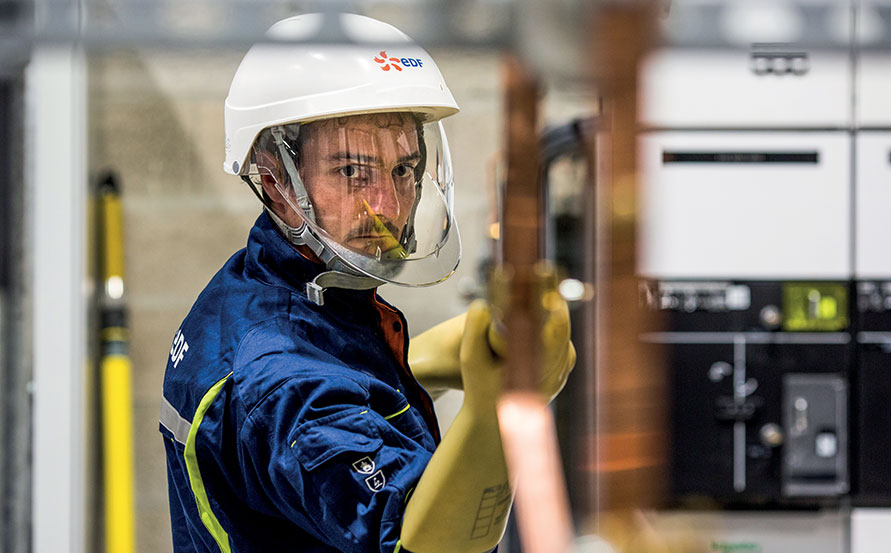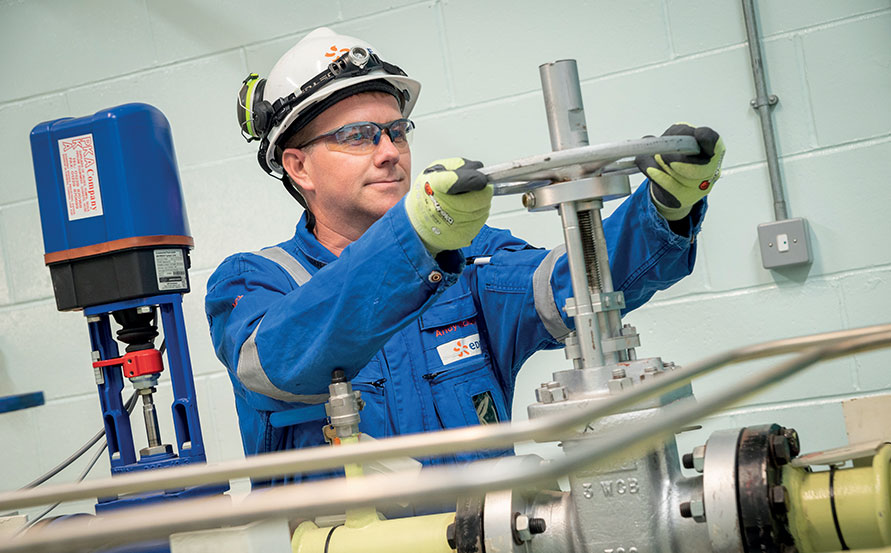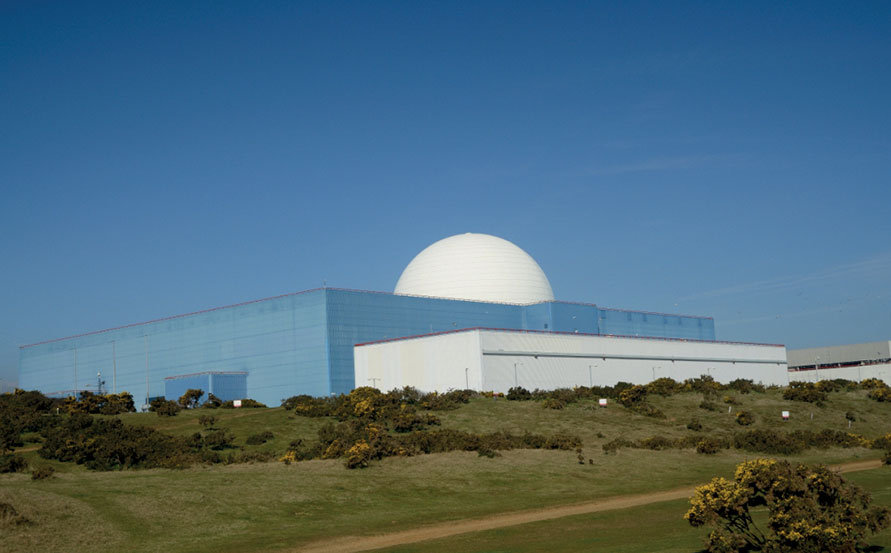- Home
- Foreword
- Contents
- 1. Retrospective and perspectives
- 2. At the heart of safety: high standards and leadership
- 3. Industrial safety and radiological protection: it’s behaviours that count
- 4. Pragmatism for the EPR2
- 5. The fleet upgrade: a colossal programme
- 6. Reactors that adapt to climate change
- 7. Nuclear fuel and reactivity control: the heart of nuclear safety
- 8. Competences: are we sufficiently demanding?
- 9. Changes in the electricity system: anticipate rather than suffer
- Appendices
- Contact
Navigation
Navigation
INTRODUCTION
Nuclear safety is founded on strong competences.
The large number of new recruits for nuclear new-build projects and generational turnover must be based on a solid foundation capable of passing on knowledge, know-how and behaviours.
Management involvement, staff commitment and high standards need to be reinforced.
France and the UK have chosen to keep nuclear energy in their energy mix. In a context of nuclear new-build projects, they have to maintain a strong skill base.
The French Nuclear Energy Industry Group (GIFEN) estimates that 100,000 new people will have to be recruited over the next ten years. According to the Nuclear Industry Association (NIA), the British nuclear industry’s workforce must grow from 77,000 to 200,000 by 2050. These figures reflect a clear ambition and engage the responsibility of all stakeholders in the nuclear sector, starting with the Operator. How can the industry attract, integrate, train and foster loyalty in a sector that has long been overlooked?
RECRUITMENT AND INTERNAL MOBILITY, DON’T COMPROMISE
Above all, a qualitative challenge
In my opinion, the answer to the major challenge of quantity also lies in quality. Our method of recruiting, training and organising attractive career development must meet the short and medium-term workload demands. It will also ensure our licence to operate in the future. We need to seriously think about the specificities of the nuclear sector: its technical aspects, standards and nuclear safety culture. I call on everyone to not compromise and to question good and bad habits.
Positive initiatives
The University of Nuclear Professions (UMN) created in 2021 is an example. By bringing together the key nuclear industry stakeholders, the UMN gives visibility to the training on offer, facilitates the matching of supply and demand, puts national and local stakeholders in touch with each other, and promotes the nuclear professions and the attractiveness of the sector. Real initiatives are already in place: the website ‘Mon avenir dans le nucléaire’, regional campuses (with the Normandy campus being the reference), and scholarships. In addition to the quality of the content, I call on those responsible for the project to challenge the standards of the accredited courses. The ‘nuclear’ label must be synonymous with excellence.
I also note the firm intention to recruit across all levels of qualification, targeting entry-level operatives at the Nuclear Generation Division (DPN) and engineering technicians at the Engineering & New-Build Projects Directorate (DIPNN). This strategy encourages enriching career paths based on operational experience and hands-on experience with different levels of responsibility.
I also find it beneficial for the Group to recruit staff from other industry sectors so their experience can be maximised without weakening the wider nuclear sector. This is why excessively complex working methods must be avoided if we intend to maintain the sector’s appeal.

Career mobility: the system is becoming tense
Mobility between the different entities of the Group is vital. During the course of my visits in 2023, I noticed that the system is becoming more rigid. This is reflected through the dwindling numbers of cross-career paths between the DPNT and the DIPNN, a limitation on staff from Edvance hindering experience, and the difficulty in relocating some Flamanville 3 construction staff to operations or other sites. Designing reactors that incorporate operational safety will require operational experience to feed the new-build projects (see Chapter 4).
Building cross-career paths between operations engineering and sites, between Framatome and the engineering centres, between UFPI and generating entities and engineering, or between French and British entities, enables the transfer of experience and good practices. The Group must adapt to the corporate world by leaving behind its stable head-count management model for a mobility-orientated management model. Retaining staff is not only a question of status, but also a rewarding career path. The reorganisation in engineering must take advantage of this opportunity to promote cross-career paths and create conditions that discourage silo mentalities from the start.
THE UK FLEET CONTENDING WITH DIFFERENT CHALLENGES
A diversity of perspectives
The perspectives for the British sites are more diverse: long-term operation of the Sizewell B PWR, operation of the Torness and Heysham 2 AGRs up to 2028, operation of the Hartlepool and Heysham 1 AGRs up to 2026, defuelling of the other AGRs between three and five years before handover to Nuclear Restoration Services (ex-Magnox), and development of corporate and project engineering teams for the Hinkley Point C and Sizewell C projects.

Despite the final shutdowns of the AGRs, Nuclear Operations has started a recruitment campaign to maintain the skill base at the sites and in the corporate services. Heysham 2 will renew almost half of its staff in five years, while Dungeness continues recruitment with the goal of training control room operators despite the shutdown of its two reactors. Maintaining and developing competencies is one of the four cornerstones of the fleet’s improvement plan. It is based on the methodology of the Systematic Approach to Training.
Operations: strong programmes
Operations have proven initial and continuous training programmes. The accreditation and authorisation renewal programmes (every three years) for shift managers (SM), control room supervisors and reactor operators are strong. Each shift team benefits from a week of training every six weeks, including simulator exercises and classroom lessons. Shift managers attend so they can assess the individual and collective performance of their teams. The ‘Line of Sight to the Core’ programme by the Institute of Nuclear Power Operations (INPO) has helped improve the effectiveness of these training weeks.
The simulator instructors are experienced reactor operators or control room supervisors. They retain their authorisation and must complete a minimum of ten shifts per year to do so. To enhance the robustness and flexibility of shift teams, ‘upgrader’ roles have been created: some reactor operators are trained and authorised to cover control room supervisors, and some supervisors are trained and qualified to cover shift managers.
Maintenance: learning by doing
While maintenance technicians benefit from a well-organised training provision and accreditation processes, they are not as broad as those for operations staff. Maintenance recruits either apprentices or experienced staff directly from outside EDF. The training and qualification of apprentices is structured over four years, whereas technicians recruited from outside EDF will gain their first authorisation based on a combination of training and assessment in work situations. Qualification and experience matrices provide a framework for any future training and competence requirements. Training and refresher sessions ensure that technicians are able to take into account changes in maintenance practices and that any gaps identified can be resolved, e.g., cases of rework and maintenance quality.
EDF Energy’s objective: to recruit 100% of all apprentices
Apprenticeship remains a preferred means of recruitment for the maintenance professions at EDF Energy. This well-structured programme with well-defined success criteria, targets the recruitment of all apprentices at the end of their four-year training period.
It starts with two years of study in an in-house training organisation, the Nuclear Skills Alliance, and continues with two years of on-site training and practical work. Despite the progressive entry of the AGRs into the defuelling and dismantling phase, this programme continues to train apprentices who will still be needed on the sites.
CHANGING MINDSETS IN OPERATIONS
Competence development at the DPN: well-founded convictions...
The START 2025 programme makes competence management one of the key drivers of performance. It is based on principles that make sense; three in particular are worth highlighting.
‘Making managers responsible for the level of competence in their teams’ is essential. I have seen too often management absent from practice training sessions, which would otherwise allow them to assess the level of their team’s individual and collective competence. The operations skills training support representatives tasked with unburdening the department heads and shift managers of administrative jobs have now assumed this role at training sessions, including during the simulator test sessions. Yet manager presence is compulsory because it engages their responsibility when the qualification is approved.
‘Restoring rituals’ within teams, is another pillar of the competence project. Among these rituals, some are the responsibility of the manager, for example training committees. I believe that the pre-shift cycle preparation day should be devoted to training and practice. Other rituals are part of a collective action: preparing mock technical tests, spontaneous teaching sessions, studying documentation on main systems and mechanical schematics, and unrestricted use of the simulator. New technologies (e-learning, digital simulators, etc.) can be invaluable tools for modernising these rituals and adapting them for the new generations. I commend the decision to provide all operations departments with ‘Saturne’ digital simulators.
‘Professionalising staff by putting them back in touch with the plant’ is an ambition that I hold close to my heart. Bringing back some maintenance activities in-house is a positive step in renewing understanding of the plant. Teams gain a sense of pride and a new phase of ownership. I encourage the continuation of this approach, and reiterate my call for consistency in the choices made from one site to another, and for this strategy to be maintained over time.
... but the mindset needs to evolve
The right drivers are in place, but the mindset needs to adapt. In addition to being the manager’s responsibility, competence development should be every employee’s or team’s concern. Staff committed to their professional development and a team committed to their competence cannot be imposed. Emulation will come from the values of the team: an individual failure at an interview or a poor performance at an assessment should be experienced as a collective failure. I therefore encourage all the French and British teams, each with their strengths and weaknesses, to regain ownership of competences. As for the managers, they must set the required standard and leave the necessary room for manoeuvre.
Bringing maintenance back in-house: pride in doing
At Bugey, the NSSS team has been working for several years on the re- internalisation of activities in the areas of welding, vessels and supports. Regarding welding, the team has focused on obtaining qualifications at the Welding Institute for butt and socket welding. A specific programme of in-house activities is produced for each outage. The team is also beginning to prepare a multi-year programme. As at other sites, this re- internalisation strategy forms part of a career path in which the workers, with this reinforced technical knowledge, will then be able to progress to different roles: supervisor, work specifiers, work coordinators or managers.
CONSOLIDATING THE ENGINEERING BASE
Rethinking the on-boarding process
The growth in the engineering workforce has complicated the usual on-boarding rituals and the development of skills through informal mentoring. For this reason, new on-boarding paths, combining awareness and training of core knowledge areas (SCIN) have been deployed. On-site placements are sometimes carried out, and training courses specific to some disciplines have commenced.
Nevertheless, heavy workloads, inability to host placements, and budgetary constraints prevent these approaches from achieving the level of strength expected. It is essential to ensure that, from the very first day, every young engineer learns the fundamentals of their profession, how reactors operate, and the nuclear safety culture. This is why the initial training programme needs to be more systematic, including an obligatory site placement. The ‘Integrall’ initiative implemented in 2023 by the Technical Division at Framatome is a fine example of this.
The issue has been raised as to whether a nuclear safety authorisation should be imposed on those working in engineering and operations to guarantee they have learned the basics. The Central Technical Support Department (UTO) has done this and Edvance has begun the process. The organisation’s nuclear safety & quality certification (ISO 19443) is an additional bonus.
The ‘Integrall’ programme: the first ‘graduates’
The ‘Integrall’ programme recruits and integrates young engineers from Framatome’s Engineering and Technical Directorate (DTI).
A class of forty of these engineers followed a 10-week programme that started in October 2023, to further develop their knowledge of physics, nuclear energy, Framatome, the DTI, and its facilities. Another six weeks were devoted to studying specific cases related to their future job so they would be able to quickly take up their responsibilities. About 100 young engineers are expected to follow this programme in 2024.
Teams on the knife edge
Other than the challenge of bringing this together, the growth in the workforce of certain groups is unprecedented. I was able to witness this in a new-build team with 20 people in 2022, which was expected to reach 50 by the end of 2023, before doubling again by the end of 2024. It is a significant challenge to maintain a balance between newcomers, the core group of specialists, and even sub-contractors. Not to mention the added difficulty of sometimes having staff based at different sites.

The management teams are aware of this risk, and beyond monitoring it and developing action plans, they have started to take organisational measures to resolve it. This is the case at Edvance with the creation of a Technical Authority bringing together experts from each department. This allows them to take a step back and resume management of the technical disciplines.
Nevertheless, I call for a return to common sense: faced with the challenge of growth and the pressure of projects, we need to maintain reasonably sized teams that guarantee overall technical control. Their long-term efficiency will be conditioned by the strength of the teams acquired during this period of rebuilding the industry.
COMPETENCES, SET HIGHER STANDARDS
Beyond the processes
The first pioneers in the nuclear industry had no other choice than to learn: the systems were all new, the nuclear safety culture had to be invented, and technical skills were acquired by being close to the plant through start-up tests and troubleshooting. The passport for joining senior management was inevitably being successful in passing challenging technical interviews, the manager being above all a technical expert.
Since then, our industry has undergone a great deal of change. While changes to assure the operator practices were necessary, have we let our guard down on the expected skill base (see Chapter 2) ?
Raising the bar
The increase in the number of positions and the pressure on succession tables, particularly in operations, have created a system where we have been tempted to cast a wider net in order to create vocations. The ratio between the number of applicants to the number of positions used to be about five to one, but it has reversed the past few years, sometimes being one to two. The gradual replacement of managers chosen for their technical expertise by managers chosen for their leadership skills has also led, both in France and the UK, to a system where knowledge of the rules overrides technical knowledge of the field. However, a good manager needs to have sufficient technical knowledge, not necessarily expert knowledge, and real leadership. When you don’t know something, you can and must learn it; the essence of who you are, however, is more difficult to change, but you can strive to self-improve.
I therefore encourage managers from maintenance, operations and the UFPI to question themselves. By setting the bar at the right level, training can aspire to higher standards without excluding people and inciting greater motivation that breeds mutual trust.
UFPI
UFPI: A RESPONSIBLE PARTNERSHIP
Competence management in the entities is largely shared with the UFPI. After having visited the sites, engineering centres and the UFPI, I am certain that the relationship between the UFPI and any entity cannot be limited to the notion of sub-contracting: it deserves to be rethought in terms of commitment to a level of skills.
The customer-supplier relationship is based on a contract. Process conformity and good dashboard indicators are sufficient. The partnership relationship aims for the best, reinforces virtuous behaviour and creates the conditions of trust so that we can also say when things are not going well. It is no longer a question of respecting contractual obligations, but learning and improving together.
According to Tal Ben-Shahar, a Harvard professor, “The choice is a simple one, learn to fail, or fail to learn.” Practice is designed for this purpose and to prevent failing the exam, which is now referred to as non-validation in politically correct terms. Whilst this makes for good relations, the performance objective is not achieved. Contrary to a basic trend in our society, the nuclear sector is not satisfied with standard results: it aims for excellence. If the required level is not reached, then a qualification should be suspended, which is a principle of individual and collective safety. This is an act of management.

RECOMMENDATIONS
Against a backdrop of rejuvenation and massive recruitment, I recommend that the Group’s directors ensure that all new entrants to engineering and projects undergo a training programme as soon as they arrive, to guarantee:
- Acquisition of the nuclear safety fundamentals
- Baseline knowledge needed to perform their job correctly
- A placement on an operational site
and to consider a system of qualification.
As skills are the foundation of nuclear safety, I recommend that the Director of the DPN collaborate with the UFPI to raise the standard in:
- Prerequisites and criteria for validating training
- Authorisation renewals, especially in operations
and to revitalise internal team training rituals.
RECOMMENDATIONS |
Against a backdrop of rejuvenation and massive recruitment, I recommend that the Group’s directors ensure that all new entrants to engineering and projects undergo a training programme as soon as they arrive, to guarantee:
- Acquisition of the nuclear safety fundamentals
- Baseline knowledge needed to perform their job correctly
- A placement on an operational site
and to consider a system of qualification.
As skills are the foundation of nuclear safety, I recommend that the Director of the DPN collaborate with the UFPI to raise the standard in:
- Prerequisites and criteria for validating training
- Authorisation renewals, especially in operations
and to revitalise internal team training rituals.

